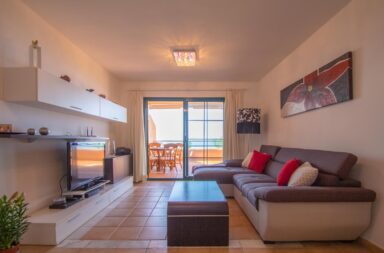The coronavirus pandemic has triggered interest in new housing, especially in the provinces of Madrid, Barcelona, Valencia and Malaga. In fact, visits to advertisements for newly built villas and flats in these locations have increased by 36.8% between May and October 2020, compared to the same period in 2019.
The coronavirus has hit the Spanish business fabric hard, but not all sectors and their segments behaved in the same way in this economic crisis derived from the health crisis. In the case of the residential sector, all the experts agree in pointing out the good health that new construction enjoys, as opposed to second-hand housing. Opinions endorsed by the increase in web traffic of this type of product after the confinement both in idealistic and in the promoters’ own web domains.
In this sense, it is worth noting the great interest in new housing in July (record month so far in 2020), with respect to the same to 2019 (minimum of the year) in the provinces of Madrid, Barcelona, Malaga and Valencia. In fact, in this case the increase has reached 48%. Taking this period of time as a reference and broken down by location, the increases of 51% in Barcelona and 45% in Valencia stand out. An increase in interest that has taken place despite the increase in the price of new properties available: 232,000 euros on average during the first 10 months of 2019, compared to 260,000 up to last October.
By type of housing, single-family homes stand out over flats. Visits to advertisements for newly-built villas in Idealista located in these four provinces have increased by 40% year-on-year during the first 10 months of this year, compared to 26% for new flats. These numbers support the theories of the experts who speak of a change in the tastes of users who now seek homes with larger spaces, gardens, and even swimming pools, after the bad experience of confinement.
The promoters’ websites also increase their traffic.
Aedas, Habitat, Neinor, Via Celere and Metrovacesa have also detected an increase of up to 85% in traffic to their websites in the months following the mobility restrictions. In fact, all the developers claim to have transformed this increase into more contacts and new sales. Single-family homes located on the outskirts of large cities are the most likely to benefit from this situation.
The covid-19 has not yet disappeared, but the companies have already begun to carry out the first analyses of the impact on their activity during the confinement of the population and the months that followed. In fact, the companies highlight one fact: the increase in traffic on their websites during the months of May, June, July and August.
The position of the future buyers during the state of alarm was the same as that of the institutional investors of the ‘real estate’: «wait and see», in other words, wait and see. Within this philosophy, the websites of the large new home developers began to register a greater number of users, but it was at the time when the government was in disarray that the explosion of traffic to these sites occurred.
«Society, after spending more than three months at home, has realised that its housing is much more than a place to pass through. It is a space to live in, and now they are more aware that a house should be more comfortable, aspects that are fulfilled above all in new construction,» Pablo Rodríguez-Losada, commercial and marketing director of Aedas, explains to idealist/news.
The promoter headed by David Martínez assures that in June, in the midst of de-escalation, its organic traffic increased by 85.96% year-on-year, after growing by nearly 57% in May. In July and August the trend moderated, but the increase remained above 50%. Thanks to these figures, they have accumulated growth of almost 40% so far this year.
«In the months of July and August we have broken the sales record with 258 operations, 20% more than in the same period in 2019 for an accumulated amount of 87 million euros. In this way, the great interest we are seeing in all our indicators is being transformed into sales», says Rodríguez-Losada.
Neinor explained to idealista/news that its organic traffic and leads increased by 28% and 63%, respectively, between May and August compared to 2019. «We are receiving more qualified visitors, where the clients know what they want; more space, spacious and luminous homes, terrace or garden, and common areas», says the developer led by Borja García-Egotxeaga.
A greater increase has been recorded by Vía Célere during this same period. In this case, the unlisted company reveals that its website has received 43.3% more visits compared to 2019.
«After the end of the confinement period, organic traffic to our website has increased considerably, showing that, despite the fact that some potential buyers were waiting during a period of great uncertainty, there is still a great demand for housing in our country», says Cristina Ontoso, Sales, Marketing, Communication and Customer Service Director of Via Celere.
Habitat, for its part, does not reveal specific traffic data, but states that it has doubled compared to the post-confinement period and the confinement, according to sources at the developer. «The confinement and the situation caused by covid-19 have meant that we have had to spend more time in our homes than ever before. Thus, we have begun to question our homes and to value what we really need and what is important to us,» says Noelia Sánchez, Director of Communication and Marketing at Habitat.
From Metrovacesa they confess that «in the months following the confinement, in June, July and August, we have obtained 15% more traffic than in the same period in 2019», says Silvia Díaz, head of Marketing and Communication for the developer directed by Jorge Pérez de Leza


